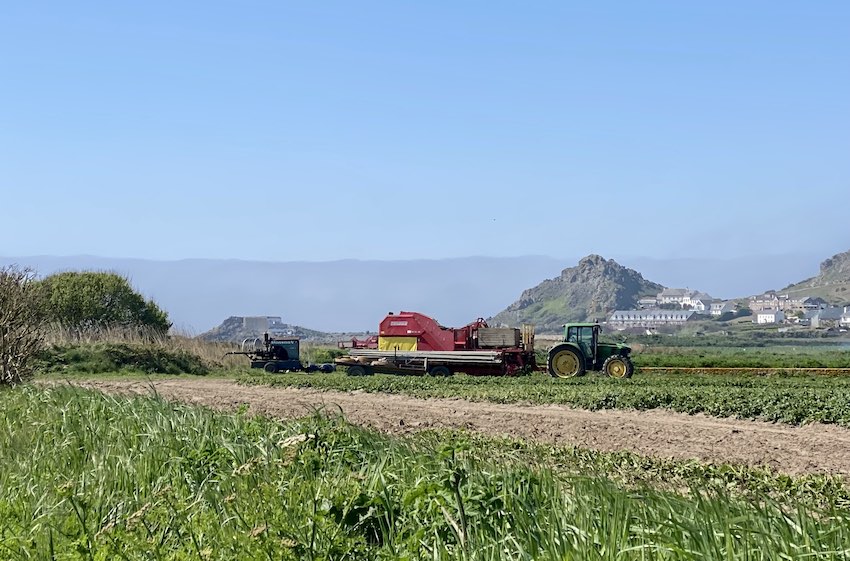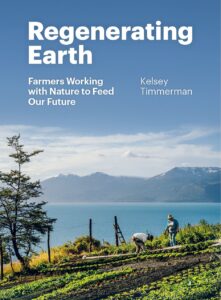
Seasonal agricultural workers may soon access free healthcare on their return to the Island, after Jersey’s Minister for Health and Social Services announced he was bringing forward revised rules following a Scrutiny report into the rural economy.
Currently, seasonal workers who return year on year are not entitled to social security benefits or non-emergency healthcare for the first six months of employment in their returning year, despite paying contributions during previous employment contracts.
To cover this period, employers regularly take out private health insurance at a cost of £150 per person.
Under new rules, seasonal workers who come back to the Island will be entitled to free healthcare on their return, providing they have lived and worked in Jersey for at least six months continuously during the three years before the date of their treatment.
The Economic and International Affairs Scrutiny Panel, chaired by St Mary Deputy David Johnson, has recommended a number of other changes to make the prospect of working in Jersey ‘more attractive’.
Scrutiny review into seasonal workers and the rural economy
Following last year’s annual Farming Conference and a subsequent meeting with the President of the Jersey Farmers’ Union, the Scrutiny Panel agreed to undertake a review to examine the employment of seasonal workers and the rural economy.
Highlighting the current shortage of labour in the agriculture and hospitality sectors, Deputy Johnson said workers ‘need to be assured that they are regarded as valuable contributors to the island economy’.
‘Whilst we are very pleased to hear that policy is being revised to provide some returning workers with access to free healthcare, we believe that the Government could do more to assist the agricultural industry,’ he said.
‘Agriculture plays an essential part in the Island’s way of life, not least in protecting its environment, and it will be to the severe detriment of island life as a whole if the sector’s concerns, particularly as to rising costs, are not listened to and addressed.’
The Scrutiny report covers various processes involving work permits and visas, associated costs, provision of accommodation, social security payments, hospital care and health insurance.
Key findings
Among the 14 key findings listed in the report, the Panel found that:
- Seasonal workers who return each year are not entitled to Social Security benefits for the first six months of employment and, to cover this period, private health insurance is regularly taken out by the employer at the cost of £150
- The offset for accommodation did not increase in line with the 2022 minimum wage but remained at £91 despite the minimum wage increasing by almost 11%
- The combined fees for each employee before beginning employment are estimated to be over £1900
- Delays to work visas issued in the UK occur without explanation and there is no direct contact for employers to get in touch with the UK Immigration Service
- The Minister for Social Security has no plans in the final months of this Government’s term to alter the current offset rates but in the next few months the Employment Forum will be asked to consider the appropriate level of both the minimum wage and offset rates for 2023.
Key recommendations
The Panel has recommended that the Minister for Home Affairs:
- Allows for some flexibility within the seasonal and temporary work permit
- Removes the £115 work permit fee for each consecutively returning employee
- Establishes a direct line of contact with the UK Immigration Services to ensure employers receive updates on the status of delayed visas
The Panel has recommended that the Minister for Social Security:
- Increase the offset in accommodation rates in line with that of the minimum wage for 2022. This would align with what has been implemented year on year in the past and should be implemented without delay.
- Implement a system whereby seasonal workers who return following a previous, consecutive 9-month contract of employment can freeze social security payments for the 3 months they are off-island. The employee should then be able to unfreeze these on their return the following year and have access to the social security system.
The Panel hopes that these changes will ‘mark the beginning of other positive changes for the benefit of the industry’.
Deputy Johnson said: ‘Implementing the recommendations outlined in our report would allow for greater flexibility and reduced costs for employees and employers, ensuring that, despite the challenges caused by Brexit and Covid-19, Jersey remains an attractive place for agricultural workers to return to work year on year.’
Access the full report on the States Assembly website: https://statesassembly.gov.je/scrutinyreports/2022/report%20-%20seasonal%20workers%20and%20the%20rural%20economy%20-%2012%20april%202022.pdf




